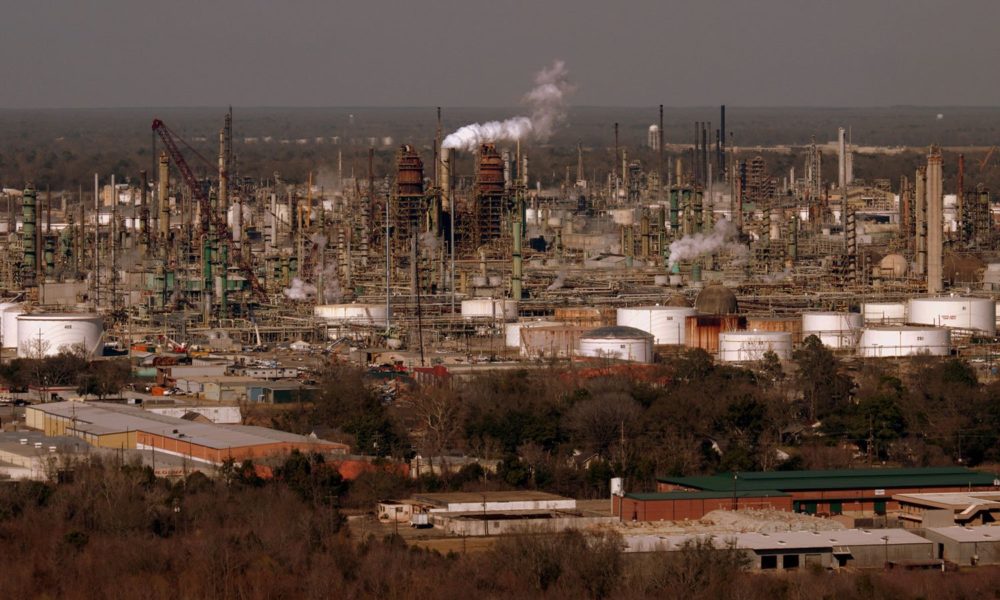Late last month, the House Subcommittee on Investor Protection, Entrepreneurship, and Capital Markets held a hearing on Climate Change and Social Responsibility. A central theme of the hearing was the need for the federal government and the Securities and Exchange Commission (SEC) to mandate the comparable, reliable, and accurate disclosure of climate risks. We’ve long pushed for this disclosure requirement—UCS is a key supporter of the recently reintroduced Addressing Climate Financial Risk Act and actively backed the Climate Risk Disclosure Act in the last congress.
Climate risk, be it physical risk from climate impacts or financial risks associated with the transition to a low-carbon economy, poses a systemic threat to the US and global economy. Corporate America, particularly the fossil fuel industry, is both contributing to climate risks and facing climate risks—which seems like a paradox the industry should pay closer attention to. The accurate and comparable disclosure of climate risks is a necessary first step in the swift and deep decarbonization that is necessary to avoid the worst impacts of climate change. Disclosure on its own is not enough, as there is no silver bullet to eliminate climate risk, but disclosure is a vital part of a necessary climate package. And disclosure has real-world positive impacts for communities, investors, and the everyday person.
Disclosure Helps Communities
The hearing featured the powerful testimony of Heather McTeer Toney, Climate Justice Liaison for the Environmental Defense Fund, Senior Advisor for Moms Clean Air Force, and former mayor of Greenville, Mississippi. I’m going to quote her directly, and recommend her testimony as required reading on how oversight on issues like disclosure has a direct impact on Black, Indigenous, and Communities of Color. Toney states, “Right now today, we are experiencing, in real time, the devastation, physical and financial loss borne by those most unable to stand the burden due to failures of corporations to adequately prepare and disclose their climate risk.” As companies continue to be affected by, and contribute to, climate change, the costs of damages and risk mitigation are being pushed onto local communities that cannot afford to pay the bills for large corporations.
Ms. Toney also spoke about the “invisible investor,” the American taxpayers invested in the infrastructure and assets of communities nationwide, and how these communities of color are both carrying the burden of infrastructure expenses and most at risk of facing the damages of climate impacts. She stated in her written testimony, “These are the ‘invisible investors’ that pay a high price when there is a market crash. They cannot short sell their stock in the community. They’re not able to redistribute the loss among other assets. Invisible investors will not be able to categorize the outrageously high electric and water bills as a capital loss and reduce their tax rate.”
Oversight and a mandatory, standardized disclosure regime are necessary to protect communities facing the dual burden of direct climate impacts and the economic consequences of these compounding climate events.
Disclosure Helps Climate Action
The American economy is not just suffering through climate impacts, its industries are also heavily contributing to climate change. Oil and gas companies such as ExxonMobil and Chevron like to pay lip service to climate action, but they also intend to increase their annual capital and exploration budgets and believe that oil and gas will make up over 50 percent of the energy mix in 2040. They are not, in reality, aligned with the Paris Agreement or the effort to reach net-zero emissions by mid-century, despite their claims. And mandated, standardized disclosure will help expose the huge gaps between what companies say on climate change and what they actually do on climate action.
ExxonMobil only disclosed its scope 3 emissions – which come from the end-use of its products – for the first time this year after massive and sustained shareholder pressure. The company’s scope 3 emissions (which are about 85 percent of the company’s total emissions) were equivalent to 730 million metric tons of carbon dioxide in 2019, or the same as the entire country of Canada. And now investors, banks, and the public can act on that information. Banks can decide if they believe ExxonMobil’s climate-related financial risks from market forces, regulation, and/or societal changes in demand are simply too much to bear and forgo financing further projects. Investors can compare emissions, spending, and climate plans between companies rather than relying on ‘self-selected’ information. Capital will be allocated more efficiently, benefiting renewable energy and climate technology industries over fossil fuel subsidies. Companies, especially those in the fossil fuel industry, won’t be able to hide the climate risks that they face and that they create.
Disclosure Helps the Financial System
Climate risks are financial risks. Everyone in the US (and globally) faces the physical impacts of climate change: rising sea levels, more days of extreme heat, damaged infrastructure, and extreme weather events (to name just a few). Corporations face these same risks, along with potential financial risks and opportunities from the societal shift away from fossil fuels. Thorough disclosure will help companies understand where their strengths and weakness lie in regards to climate impacts and the low-carbon transition. It will help investors and banks better spend their money on companies that are prepared for a low-carbon economy. It will also help the public understand which companies are taking real action to reduce their emissions, support climate-friendly policies, and protect the communities in which they operate.
CalPERS, the largest pension fund in the country, is mandated by the State of California to disclose its financed emissions and exposure to climate-related financial risk. And CalPERS still supports federally-mandated, standardized disclosure to the SEC. Required disclosure is clearly not so burdensome that the pension fund would fight it at the federal level. Even the minority witness admitted that climate risk disclosure would not be a burden to companies going public.
There is no downside to the SEC mandating a comprehensive, comparable, and timely climate risk disclosure regime. Allison Lee, acting chair of the SEC, agrees and has asked her agency to update its 2010 guidance on climate disclosure to better address investor needs. The SEC has already announced the creation of a Climate and ESG (Environmental, Social, and Governance) Task Force in the Division of Enforcement. The ‘Addressing Climate Financial Risk Act’ has been reintroduced in both the Senate and the House, and sponsors Senator Diane Feinstein (D-CA) and Representative Sean Casten (D-Ill) are working to garner support on both sides of the aisle. We need to keep up the pressure on the SEC and the Biden Administration to support a federally- mandated climate risk disclosure regime that will facilitate and stimulate an equitable and just transition to a low-carbon economy.

